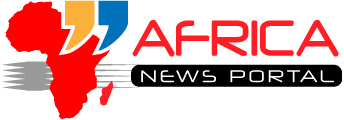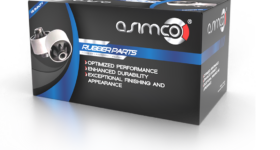Botswana is strategically located in the heart of the Southern African Development Community (SADC) − a region with more than 250 million people. Underpinned by good governance and a zero-tolerance to corruption, it is one of the most stable and investor-friendly economies in Africa. Although its economy has been anchored on resource endowments, particularly diamonds, the country is lauded as a developmental success story on the continent.
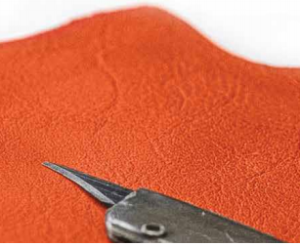 Botswana has created an enabling environment for capital and business to strive and support its strategic focus to diversify the economy into value-adding sectors that will serve a fast-emerging regional market. As a result it is the fourth most competitive economy in Africa, and one of the easiest African countries to do business in on the continent.
Botswana has created an enabling environment for capital and business to strive and support its strategic focus to diversify the economy into value-adding sectors that will serve a fast-emerging regional market. As a result it is the fourth most competitive economy in Africa, and one of the easiest African countries to do business in on the continent.
Botswana’s Leather Industry Overview
Botswana has an abundance of raw hides and skins locally. The country has an annual national herd size of 2.5-3.3 million cattle; with an average off-take ratio of 9% estimated only through the Botswana Meat Commission (BMC) annual throughput, yielding 200,000-300,000 hides per year.
As middle income populations in emerging markets grow, so too does the global demand for leather products. With a small number of micro businesses and artisanal enterprises operating as tanneries, hide collectors and leather product manufacturers, Botswana is in the process of creating a vibrant leather cluster which will kick start with the development of a leather park in Lobatse.
Opportunities In The Botswana Leather Sector
Despite Botswana’s relatively limited market size, its central location in SADC and the availability of raw material inputs presents multiple opportunities for investors seeking to tap the leather and leather goods industry. The government’s prioritisation of other sectors including automotive and component manufacturing, mining, tourism and logistics will lead to the development of synergies between these sectors and the leather industry. This may be very beneficial as input and transport costs are expected to be lowered in the short to medium term. Botswana exports most of its raw hides whilst importing manufactured products. A noteworthy opportunity exists to manufacture locally, providing value add to Botswana and the regional and global export market.
Among the key opportunities in the sector are:
• High premium leather production: Botswana’s animal and raw hide production meets industry and environmental standards creating opportunities for producing eco-friendly leather;
• High premium leather goods production: production of high premium & luxury leather products ranging from OEM car seats to consumables;
• Preferential market access through trade agreements to key growth markets for leather and leather products: the African Growth and OpportunityAct (AGOA), European Union (EU), Mercado Común del Sur (MERCOSUR), Southern African Development Community (SADC), and the Common Market for Eastern and Southern Africa (COMESA);
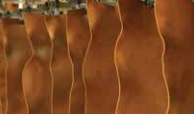 • Exporting leather and leather goods to high growth markets: growing demand for leather and leather goods in China, the US and EU has been reflected in high compound annual growth rates (CAGR) in the last five years and these countries present significant export opportunities for Botswana’s leather and leather goods;
• Exporting leather and leather goods to high growth markets: growing demand for leather and leather goods in China, the US and EU has been reflected in high compound annual growth rates (CAGR) in the last five years and these countries present significant export opportunities for Botswana’s leather and leather goods;
• R&D for the leather sector: training rebates and migration laws for innovation are supported by modern facilities and a strong legal framework; and
• Investment in supporting sectors: such as waste management, training, marketing, distribution, logistics and supporting infrastructure particularly around the prospective leather cluster, the Lobatse Leather Park.
Among the leather sector’s most promising opportunities is the supply of inputs to the automotive sector in neighbouring South Africa, Africa’s largest vehicle market and manufacturer. Due to its close proximity to South Africa, Botswana has a delivery time advantage over major competitors in Asia, Europe and North America. South Africa’s automotive manufacturers produced close to 750,000 vehicles in 2015 and are expected to increase production to 1.2 million units by
2020, providing regional suppliers with ample opportunities to supply components and parts. Stitched leather seats and parts are among South Africa’s top 10 automotive component imports.
Botswana’s Value Proposition In The Leather & Leather Goods Industry
Beyond significant raw material inputs, the proximity to growth markets and the market access of Botswana’s leather, the country will also be home to a leather cluster, creating an enabling environment to facilitate the sector and providing linkages between players. The Lobatse Leather Park along with the various associated benefits and enabling infrastructure will be in the form of an industrial park situated 70km from Gaborone.
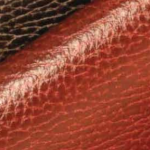 The leather cluster will provide a common effluent treatment facility, a training centre, factory shells for investors in wet-blue tanneries and re-tanning and finished leather plants. The park is expected to be completed by the beginning of 2018. Thanks to Botswana’s central location, the country is well-positioned to produce leather goods for the growing SADC and African consumer base. One ofthe institutions supportingthe leather park development is theAgricultural Hub. Established in May 2008 with the aimto promote commercialisation, diversification, investment and employment creation in the broader agricultural sector, the Agricultural Hub assists in creating a conducive policy environment that facilitates and supports the development of a sustainable and viable agricultural industry. The leather and leather goods sector receives support from this and a number of other institutions.
The leather cluster will provide a common effluent treatment facility, a training centre, factory shells for investors in wet-blue tanneries and re-tanning and finished leather plants. The park is expected to be completed by the beginning of 2018. Thanks to Botswana’s central location, the country is well-positioned to produce leather goods for the growing SADC and African consumer base. One ofthe institutions supportingthe leather park development is theAgricultural Hub. Established in May 2008 with the aimto promote commercialisation, diversification, investment and employment creation in the broader agricultural sector, the Agricultural Hub assists in creating a conducive policy environment that facilitates and supports the development of a sustainable and viable agricultural industry. The leather and leather goods sector receives support from this and a number of other institutions.
Robust Investment Incentives
Botswana offers many incentives for investors. These include:
• No foreign exchange controls; remittance and full repatriation of profits and dividends
• No restrictions on business ownership
• Duty-free import of machinery and equipment for manufacturing purposes
• Customs duty exemption on raw materials for goods going outside of SACU
• A liberal tax regime: 22% corporate and 25% personal tax, with 15% corporate tax for manufacturing and IFSC- registered companies (lowest taxes in the SADC region)
• Negotiable tax holiday (up to 10 years maximum)
• Deductible training rebate of 200%
Beyond incentives and as one of the most business-friendly and stable countries in the region, Botswana provides investors with a conducive and welcoming operating environment. A high degree of safety and security as well as a strong focus on the rule of law gives Botswana an edge over its regional peers.
